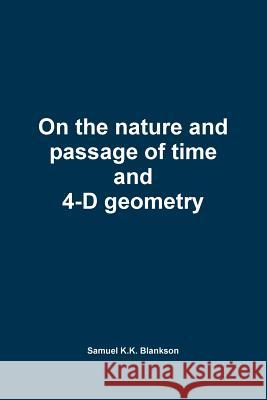On the nature and passage of time and 4-D geometry » książka
On the nature and passage of time and 4-D geometry
ISBN-13: 9781471682087 / Angielski / Miękka / 2012 / 293 str.
PAPERBACK: In his 10th book on post-relativity philosophy of time, the Ghanaian philosopher argues that all the theories we read about time are useful only for constructing clocks to accord accurately with the earth's regular motions and astronomical features. The many bemusing technical terms employed (like duration between events, sidereal time, solar time, nutation, equinox, earth's rotation, the precession of the equinoxes etc.), were all invented to account for fixed, general and absolute time, running all through the cosmos and the same everywhere. This view of time, however, was abolished by Einstein. He adds that everything we have ever used to reckon time (including atomic time) amounts to mere physical cycles, pulses or oscillations that we count as the units of time---the years, for instance---but they are passing. He has also uncovered Einstein's undoubted snub to 4-D geometry.
PAPERBACK: In his 10th book on post-relativity philosophy of time, the Ghanaian philosopher argues that all the theories we read about time are useful only for constructing clocks to accord accurately with the earths regular motions and astronomical features. The many bemusing technical terms employed (like duration between events, sidereal time, solar time, nutation, equinox, earths rotation, the precession of the equinoxes etc.), were all invented to account for fixed, general and absolute time, running all through the cosmos and the same everywhere. This view of time, however, was abolished by Einstein. He adds that everything we have ever used to reckon time (including atomic time) amounts to mere physical cycles, pulses or oscillations that we count as the units of time---the years, for instance---but they are passing. He has also uncovered Einsteins undoubted snub to 4-D geometry.











